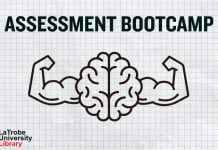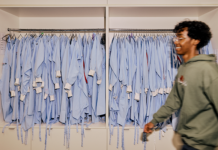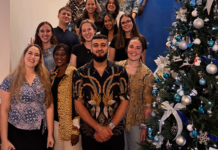La Trobe’s Peer Learning Advisors (PLAs) are high-achieving students who have been specially trained to help others with study and assessments. Go to the Learning Hub LMS to find out more about the PLAs and access the Zoom drop-in service.
Written by La Trobe PLAs Pan and Sienna.
Plagiarism, collusion and contract cheating. They’re all different things, but what they share in common is that they come into conflict with our academic integrity responsibilities as students. What does that mean?
Both staff and students at La Trobe University have responsibilities under the university’s policy to conduct scholarship honestly. Plagiarism, collusion and contract cheating are very serious matters and can bring us into conflict with these and amount to academic misconduct. Okay, that all sounds quite scary, but with that out of the way, let’s understand what each of these are.
Plagiarism
The ever-helpful La Trobe Library LibGuides provide a useful overview of plagiarism, adapted from the Centre for Academic Integrity’s (2012) document, ‘Why integrity’. It tells us that plagiarism occurs when we use other people’s ideas, design, thoughts or work without acknowledging where they originated from, in order to pass an assessment, get a higher mark or gain some kind of benefit.
Collusion
Collusion is a type of cheating, and it occurs when people work together to develop an assignment which is intended to be an individual effort. It involves copying someone else’s work or allowing someone else to copy your work. Be aware – it is often easy for markers to spot collusion.
The difference between legitimate collaboration and collusion is subtle, but important. While collaboration is encouraged, passing off another’s work as your own is not.
Good examples of collaboration involve two (or more) students working together to help each other better understand what a topic or concept means or how this can be applied in their studies. It can also involve discussing approaches on how to solve a problem. As peers, we’re allowed and even encouraged to try and help each other understand and learn.
However, answers to any assessments, exams or written work that are being marked individually should be completed independently and in the individual student’s own words. Collaboration crosses over into being ‘collusion’ if there is discussion, recording or copying of the specific ‘answers’ to a question or problem, which forms part of an individually assessed work.
Contract cheating
Contract cheating involves asking another person to complete some, or all of your work (this could be an exam, an essay, report or assignment), and then submitting it for examination as though it was your own. Contract cheating doesn’t need to include a payment for you to be accused of engaging in it.
Take-home message
Always acknowledge your sources – don’t try to pass off another person’s work, ideas or designs as your own.
Remember: if you have concerns about plagiarism and acknowledging your sources correctly you can always get help from Peer Learning Advisors (PLAs) or other university library staff.














